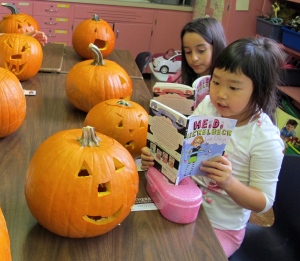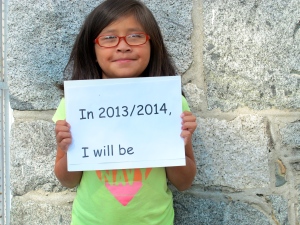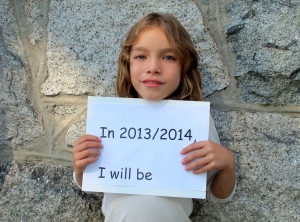Yesterday, I published a list of favourite book lists I have posted on this blog in 2015. I said it in the post and I will say it again here: I make a lot of lists.
But here and there, I do some thinking.
Sometimes it is reflective. Some of it is not quite clear. Writing it down means I figure some of it out. Some of it has “rantish” leanings. But all of it captures my journey as a teacher, a reader, a human.
Today, I honour the posts that best capture my year . . . in thoughts. Putting this together was an interesting process. A healthy, emotional process.
In January, I gave voice to the not so wonderful Monday: Monday leads to Friday Sometimes it is all about hanging in!
From this post:
On some Mondays, I question whether I have it together at all. A lot seems to not be yet “in synch” and the previous week feels very long ago. Monday often feels like a warm up, remind ourselves, get it together day. I don’t often say TGIF. But I often think TGMIO. TGMIO = Thank Goodness Monday is Over. Monday is the day when we don’t have the cushion of success immediately behind us. Anxiety is higher. Stamina is lower. Energy is inconsistent. When Monday is under our belt, it’s like the clouds part. The sun creeps in or sometimes it lights up the week bright and strong on Tuesday and holds fast.

In March I fully celebrated all things book nerdy: Nerding Out I attended not one, but two literacy conferences and the first EVER nErDCamp Bellingham.
From this post:
And yes, I love all of this – the authors, the illustrators and the literacy love. But why do I love it so much? Because I can share it with my students.
Their book love is my book love.
Our passion for literacy is always, I hope, transformative.

In April, there were some rocky weeks. But I fuelled up on what was always around me: Fuel
From this post:
Every so often though, I need to gather fuel. Fuel to recharge when there are lots of hard moments. This week, I celebrate that thanks to some sunshine, some impressive and supportive colleagues and the laughter and smiles of the children I work with, I found the energy to go looking for that fuel. And of course, I found it. Right there. Where it always is. All around me. Waiting to be noticed. Ready to shine the light.

In April, I also began the process of letting go: Three Years Only a few months left of sharing a classroom everyday with a group of children (many for a full 3 years).
From this post:
It has been a very special gift to teach so many children for so long. I may never have this opportunity again and I know it. All children teach me so much. These children have been particularly influential. This is my 20th year at this school and I don’t think I have ever been so full of change and possibility. Wanting the room to be full of learning and security for these children has pushed me to risk take and shift and reassess constantly. My learning has been perhaps the most rich.

When school was really over in June, we were all ready: Goodbyes
From this post:
Yes, we had some tears. Yes, there were lots of hugs. But most of all there was security. When you build something great together, it still stands when you step away. Somehow, quietly, we all knew this.
And so . . . our goodbyes were full of gratitude, of smiles, of honouring what we have built. And of knowing that it is in each of us.
I am so lucky to be a teacher. So lucky to work with such wonderful children. Today, I celebrate that.
Big breath.

In July, I shared Sunday Morning Perspective all about knowing what is really important in the classroom: community.
From this post:
Our classroom is its own community. What we build is ours. The learning environment is a safe haven and that is powerful and necessary for many children.

In August, I was thinking full steam ahead – all about my new to me readers and reminding myself to go slow: Literacy Nest Building 101
From this post:
I need to dust off my patient self and approach this new group with more experience, deeper commitment and careful and best intentions. I want to do it right. Wrap them in book love and let them settle. Not squeeze too tight. Let the books do their thing. Build a literary nest in which to nurture these new readers. When we fly, we will soar. But first there is going to be a little bit of bumbling about. Some falls. Some reading journeys that need more lift off. The right wind. Smoother landings. We will get there. One book at a time. Shared together. Shared between us.

I was also getting all bothered by the prospect of evaluation overkill and wrote this in my head and in scratchy scrawls (stopping at bus stop benches as I shopped for vegetables, to write down my thoughts in a notebook): The Power of Observation My “rant” about all that we can know by watching.
From this post:
The wonderful thing about observation? I can gather information all day, every day as we continue to engage in our daily learning. The power of observation. Over time. In many different activities. With children we know and have relationships with. It gives us so much more than any paper and pencil task will ever do.
We don’t need to fill our first weeks with students with assessments. We need to let the learning begin. Everything we need to know is happening right in front of us if we just pay attention.

September brought a new class. New needs. Some of them surprising. Deeper literacy needs than I was initially prepared for . . . But I found a way to celebrate the challenge: Celebration: From Here
From this post:
I feel worried. I feel little moments of desperate. This isn’t grade 1 where my task is to grow readers from non readers. This is grade 2 and 3 where I must now grow readers and play all kinds of catch up. I feel responsible. But most importantly, I feel urgent. And this is what I celebrate – the urgency of my task. The advocacy that needs to happen. My determination. It is fierce. My fear. It is motivating. My breath. It keeps me grounded. Somehow, someway, we are going to change things for these children.

A Sunday Reflection in November: Honest Truths, Metaphorical Whales and the “in between” place Meeting Marla Frazee “steadied my boat” on a rainy November morning and helped me back to a steady shore.
From this post:
I am a teacher. A teacher who believes firmly in the gift of literacy. I am a conduit between authors and illustrators who have magic to give and the children who need to receive it. And when I can, I reflect it back. I love nothing more than to share how very beloved stories are in a community of little readers. I am blessed to sit “in between“- in the middle of the book makers and the readers and listeners who they make these books for.

In December, after one sleep into the holiday break I wrote (Brief) Ramblings and the Happiness Train. Sometimes, we need to embrace our inner silly and capture the energy of childhood.
From this post:
There is something freeing about leaping about and laughing with a bunch of five to eight year olds along for the ride. Freeing and needed.
Finally, one of my little guys leaped in front of us. “This is the terminus! Last stop!” he shouted. And, we all agreed. The children ran off, lighter, ready for the last ten minutes of playtime. I walked inside, lighter, but loaded down with connection, calm and the feeling of “just right.”
A year of thoughts. What a year. So happy to be a teacher, a learner and a thinker who still has much to figure out.
Best to everyone who reads this blog – I also learn so much from each of you!





































